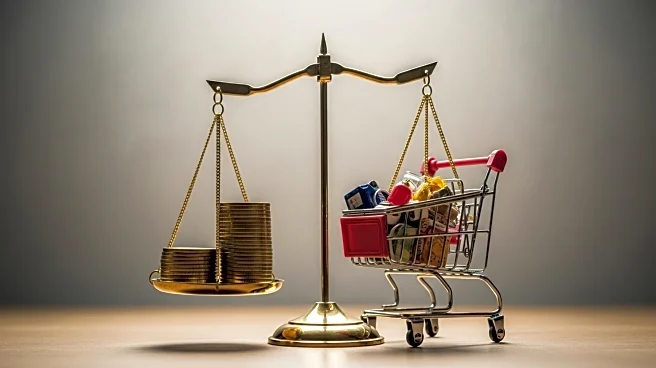What's Happening?
CNN business reporter Matt Egan highlighted solid consumer spending in July despite concerns over President Trump's tariff policies. Retail and food services sales increased by 0.5% from June and 3.9% from July 2024, according to the Commerce Department. Egan noted that consumer spending, which constitutes 70% of the economic output, showed positive growth after previous declines, alleviating fears of economic slowdown. However, the data is not inflation-adjusted, and there are concerns that wealthy Americans may be disproportionately represented in the spending figures. The Bureau of Labor Statistics reported a modest 0.2% increase in the consumer price index for July, with energy and food prices remaining stable.
Why It's Important?
The report on consumer spending is significant as it reflects the resilience of the U.S. economy amid President Trump's tariff regime. Consumer spending is a critical driver of economic growth, and its stability suggests that the economy is weathering the potential inflationary pressures from tariffs. However, the slow job growth and modest CPI increase indicate underlying challenges. The tariffs, while intended to protect domestic industries, may lead to higher prices for imported goods, affecting consumer purchasing power. The economic implications of these policies could influence public sentiment and political dynamics, especially as the nation approaches future elections.
What's Next?
The economic landscape may face further challenges as tariffs continue to impact prices and consumer behavior. Stakeholders, including businesses and policymakers, will need to monitor inflation trends and job growth closely. Adjustments in tariff policies or economic strategies may be necessary to sustain consumer confidence and economic stability. Political leaders may also leverage economic data to shape campaign narratives and policy proposals, particularly in addressing voter concerns about cost of living and economic security.











